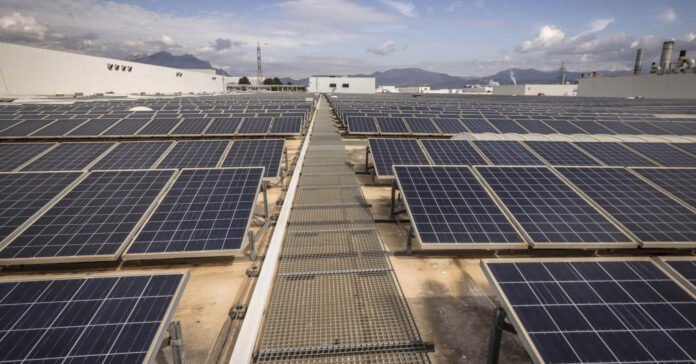Solar stocks sink fast in early trading as the U.S. Senate introduces a new budget proposal. The “One Big Beautiful Bill” aims to end key clean energy tax credits by 2028. Consequently, investors reacted swiftly, sending solar-power shares sharply lower.
First, Enphase Energy dropped nearly 24%, closing at $34.95. Similarly, SolarEdge Technologies plunged almost 36%, reaching $15.37. Meanwhile, SunRun lost over 41%, falling to $5.66. Even First Solar fell close to 17%, landing at $145.60. Clearly, markets questioned the future of solar investments.
Next, the bill would slash clean energy incentives drastically. It reduces solar and wind tax credits to 60% in 2026. Then it cuts them to just 20% in 2027. Finally, it eliminates them entirely in 2028. Also, the 30% residential solar and battery credit (25D) expires just six months after the bill passes.
Furthermore, the proposal spares other energy types. It keeps full tax credits for hydro, nuclear, and geothermal projects until 2033. Then it trims them by 2036. Clearly, this signals a policy shift favoring traditional and selective renewable energy under Trump-era priorities.
Also, the bill ends electric vehicle tax credits rapidly. New vehicle credits drop in 180 days. Used vehicle credits disappear in just 90 days. Altogether, this marks a broader retreat from certain green energy incentives.
Industry experts express growing concern about these changes. Solar projects rely heavily on tax incentives to stay affordable. Without them, many installations could stall. As a result, home buyers and businesses may delay solar upgrades due to higher costs.
Moreover, the affected companies face tough challenges. Enphase and SolarEdge both depend on residential and commercial solar demand. They could suffer revenue losses from reduced adoption. Similarly, SunRun, which leases solar systems, might see decreased sign-ups. First Solar, a leading panel maker, also faces pressure. These firms now reassess strategies for a less supportive policy landscape.
In addition, market sentiment reflects these fears clearly. Investor confidence fell sharply after the proposal emerged. That reaction highlights how deeply policy influences the renewable sector. Thus, companies now weigh alternative markets or lobby for policy changes.
Still, the bill’s fate remains uncertain. It must pass the Senate first. Then it faces approval in the House. Finally, the President needs to sign it into law. Until then, industry experts urge caution. They warn that solar growth could stall without support.
Finally, the U.S. commitment to clean energy may hinge on this bill. Its final version could define solar’s trajectory for years. In turn, investors and industry watchers will focus on negotiations. After all, they understand that any rollback affects the climate, economy, and energy markets.
In conclusion, solar stocks sink fast under pressure from potential tax credit cuts. Company earnings, consumer costs, and sustainable energy targets now face uncertainty. Meanwhile, the Senate outcome could shape solar’s future growth in America.
For more business updates, visit DC Brief.


